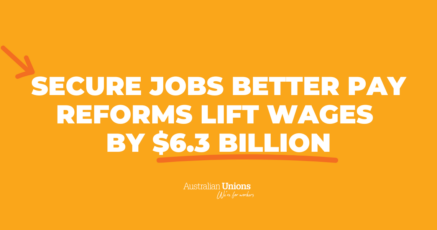The Morrison Government’s Plan for Australia to reach net zero emissions by 2050, released this week, has been widely criticised domestically and internationally, for its reliance on flimsy slogans and its explicit avoidance of changing the policy status quo. Most crucially, however, this policy highlights that the Morrison Government is not simply passive or inactive in the face of climate change; it is actively pursuing and facilitating it, and is happy to sacrifice lives, the environment, and the economy in the pursuit of short-term political gain.
The IPCC reported in August that the Earth is already at 1.2 degrees of warming beyond pre-industrial levels, meaning that the climate is only 0.3 degrees below the upper “safe” limit for rising temperature which was outlined in the 2015 Paris Agreement. The IPCC modelling made a clear case that it is only if immediate, drastic action is taken globally that there will be a 50% chance that global warming will stop at that threshold; and that global emissions must peak within the next few years before dropping significantly in order to avoid global warming beyond the 2 degree threshold. Simply pursuing net zero emissions by 2050, at this late stage, will be insufficient to make these meaningful, drastic changes which are needed to avoid the most dangerous global warming scenarios.
Nowhere in Morrison Government policy is there even a hint of that degree of drastic action. Indeed, the Plan explicitly commits to avoiding change; stating that existing policies will be sufficient, that there will be no government direction in transitioning “traditional industries”, and maintaining the tired commitment to “technology not taxes”, which offloads any government responsibility onto individuals and the private sector at the exact moment that decisive intervention is needed.
Economic stability is central to the rhetoric of this Plan, yet there is no sound basis for this in the policy itself. Australia’s refusal to invest actively in transitioning jobs and skills from what the Morrison government calls “traditional industries” in the mining sector, means that workers in these industries are having their long-term futures sacrificed by a government which is unwilling to build a more secure transition.
Any realistic policy would recognise that as the rest of the world takes action on climate change, there will be an unavoidable reduction in demand for extractive fossil fuels, just as there will be an increased demand for renewable energy. Leaving this to the market alone poses risks to workers as well as risking poorer, slower transition outcomes. There is a clear and obvious opportunity for a just transition to be managed between those sectors, and yet it is exactly this kind of foresight which the Morrison Government actively refuses to engage in.
There is no shortage of research demonstrating that actively transitioning, retraining and redirecting skills and investment towards renewables will lead to a more secure economic and environmental future – as outlined in Michele O’Neil’s July speech to the National Press Club, recent research has demonstrated Australia is uniquely placed to redirect skills and resources away from fossil fuels and towards offshore wind energy more easily than in many other economies.
More broadly, building and investing in greener energy expertise would position Australia to contribute to and coordinate with the global energy transitions which must take place over the next decade. Continuing to resist this change would be economically as well as environmentally counterproductive, and would betray the significant knowledge, expertise, and wider potential which could be harnessed in a more supportive and responsible policy environment.
In this sense, the Morrison Government is not operating in a vacuum of knowledge or resources. This is despite its deliberate and overt attacks on the university sector, which has been consistently undermined, excluded from economic support, and had its funding slashed and rendered more onerous over the course of the pandemic. Indeed, more than one in five jobs in the university sector have been lost during the pandemic, a trend with continuing reverberations. Yet instead of cultivating and investing in this expertise, ministers in the Morrison Government currently prefer inciting ideologically driven arguments with researchers rather than funding them to do their jobs.
Meanwhile, the impact of climate change is already being felt by workers in sectors spanning the Australian economy, as highlighted in recent research by the UTS Climate Justice Research Centre with the United Workers Union. The Plan claims it “will not put industries, regions or jobs at risk”: given that a business-as-usual approach is precisely what constitutes risk, this claim is patently false. The risk is already here, and it is being borne disproportionately by individuals who are victimised by government inaction. By refusing action, the existing risk is not only being magnified, it is being cultivated.
Less than two years after the trauma and devastation of the 2019-20 climate-fuelled fire season, the Morrison Government seeks to fiddle while preparing for the world to burn again. It is insulting to brand this policy “The Australian Way” – despite the attempts of the National Party to hold the country to ransom, the majority of Australians understand the need for far more substantial change than the Morrison Government is prepared to offer. Australia, and the world, deserve better than this lazy cruelty.







SHARE:
As the Morrison Government courts climate change, the world deserves better